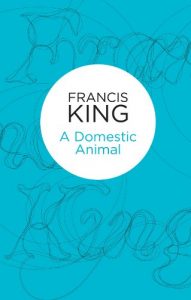‘Italians are not really domestic animals’ is the repeated verdict of Antonio’s English landlady. A brilliant philosopher in his thirties, he has come to a redbrick university for a year of research, leaving a wife and two children behind in Florence. Antonio is one of those individuals to whose charm everyone capitulates; but because of difficulties in his early years – poverty and the death of his father forced him to earn money as a professional footballer to see himself through school and university – he has an insatiable greed for reassurance, admiration and affection. All these Dick Thompson, a successful middle-aged novelist in whose house Antonio eventually goes to live, is willing to supply in abundance: inexplicably and ruinously Dick has fallen in love, for the first time for many years, with his handsome lodger. Meanwhile Antonio has also taken up with Pam, a secretary who soon becomes his mistress.
The story of this curious triangle – a novelist and mistress begin to feel the pull of a mutual attraction in spite of their distrust and jealousy of each other – is told by Dick, looking back on his infatuation as on an illness that may be temporarily relieved by this or that remedy but can never be wholly cured. Yet for all his own frustration and despair – rarely has the anguish of unreciprocated love been more movingly described – Dick can still feel understanding and compassion both for the girl who, like himself, has fallen prey to the ‘domestic animal’ and for the ‘domestic animal’ himself, always eventually brought back to heel – however far he may stray – by the wife who loves him so much and knows his secret nature so little.
Finely-honed, psychologically acute and constructed with rare skill this is a book which has something universal to say about love, jealousy and the essential loneliness of all human beings.






